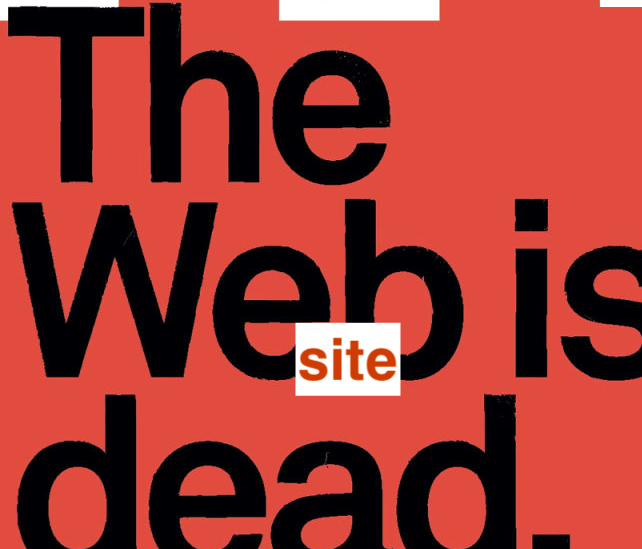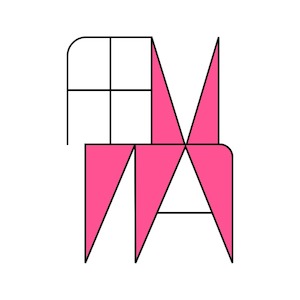We must confess that we seldom focus on Hip-Hop and even less on Africa. The former being a globalised mass culture, and the latter remains out of reach and connections. Well, we are trying to change that, as change we must (all the time). Recently we spoke to a few female voices from Senegal, located at the extreme end west africa. About Rap, Feminism and the intrinsic challenges and biases existing in Senegal. But wait, some context is required about the headline.
Since 2010, there has been growing interest in gender equality at music festivals in EU and North America. However, little has changed in terms of creating true diversity, or changing the very spectrum of female talent emerging via popular, indie and fringe music. The stage remains mostly 'occupied' between an overwhelming majority of white women, with a few token exotic asian, black, transgender and far-out divas. We also notice the relative lack of scholarly resources allocated in large and small music festivals to address gender equality. Sadly some european festivals are exploiting gender politics, simply to appear egalitarian or better. Yet that is the general air of populism within Europe. We must look beyond, for new action and change...
We knew practically nothing about the native (and massive) Hip Hop culture of Senegal, until we came across Festa 2H. Attended by close to 100,000 people every year, the festival has dedicated space and presence of women rappers, DJs and producers. The gradual formation of grass-root institutions has resulted in female voices taking up increasing space and (and volume) at festivals, on Senegalese radio, TV and popular internet channels. Artist and rapper Black Queen recently launched a manifesto to address violence against women in Senegal. She addressed the government in clear words, to change the law and smash the oppressive customs down. "During my research period, I lived in Dakar, the capital of Senegal and the country’s main centre for rap music. The fieldwork was part of a doctoral research project on the Senegalese rap music scene, defined as a collective of individuals involved in the making, performance and reception of a type of music they described as a form of rap embedded in a local context (i.e. Dakar and its suburbs)." states Cécile Navarro University of Lausanne, Institut des Sciences Sociales des Religions. The social and cultural context of rap music which exists in Senegal today, has cut through many patriarchal lines of control and domination. One such example of women's empowerment via direct representation is the Urban Women Week. UWW is organised by a Senegalese association which aims to promote women in Hip Hop including rap music. The festival is an example to empower women as well as respond to local inclusion of women in rap music. UWW also mirrors the various changes we see in the field of gender equality across the world, yet in a localised and democratic way. The imported white divas and big euro-DJ cartels have been mostly done-with in this new wave of grass-root feminism.
The older generation in Senegal, men and women, generally hold a strong bias against Hip Hop. This seen across many african nations, in-spite of the meteoric rise and popularity of Rap and Hip Hop. Some even call it a "sin". Sounds like the case of the delta-blues in 19th century America. Women rappers and their corresponding crews often fall apart due to societal pressure and a sense of shame, constantly pushed upon them. However men making Hip Hop and Rap music meet little or no resistance. The same idiotic cliches float about, that men are simply more talented and hence make it as stars or whatever industry benefits they reap. Yet the resistance is strong and the few persistent female voices are inspiring the many. Those who still remain shy or simply forbidden to express themselves with a microphone. "There are thousands of female rappers in Senegal. Watch out!" harked the girls of G.O.T.A.L the all-female rap outfit from Senegal. Even as men outnumber women in Senegal by a clear margin inside the rap arena, the number of female rappers and DJs is on the rise bit by bit. Since 2014 more female performers have emerged in rap music and related Hip Hopdiscipline - Moona, Toussa, Mina La Voilée, O.M.G, Mamy Victory plus graffiti artist and slam performer Zeinixx, DJ Zeyna and DJ Nina. These women are mostly based in the capital city, yet we are told of emerging female voices from remote parts of Senegal as well. The Galsen Hip Hop Awards expanded in 2017 to include a new category of “best female rapper”. One can say with evidence, that Rap music in Senegal is proving to be a major arena for empowerment of female talent.
Senegal ranks quiet low in the gender equality index (120 in 190 nations). The statistics show that an overwhelming majority of women are married-off between the age of 18 to 25. The percentage of women working as entrepreneurs in the entertainment sector is also very low when compared globally, yet fairly high when compared with other west-african nations. "It's sad because Hip Hop is so big here like the rest of the world, but women singing about racism, democracy and domestic violence are often bracketed as rebellious and even eccentric, in Senegal" states Vrai Rap Galsen. Society in Senegal is visibly in transition, when we see the fledgling old traditions and biases being heckled by contemporary youth narratives. The narrative of urban Senegalese music which comes out as Rap, Hip Hop Trap, Afro-Beat and bits of electronic music. Dakar, capital city of Senegal can be considered as 'happening' as NYC or Paris for it's native brand of Rap and post-Hip Hop music, if only one is listening and not get carried away by the 'afro-exoticism'. Even as a lot of empowerment projects in Senegal are actualised only via foreign aid (UNHCR, UNESCO, embassies of various EU nations, USA and Canada plus Swiss, Belgian and Danish NGOs), the nascent and native culture of Rap and Hip Hop is seen as a big positive change. Events like the UWW can only motivate more women (and men) from Senegal to create equal spaces and opportunities via music. "I feel that UWW. remains strongly embedded in national meanings of what the promotion of women should involve. This local embedding is mostly signified by a break with feminist ideas they interpret as being an exclusive discourse for women, or an oppositional relationship between women and men..." Cécile Navarro who published a detailed field study this year, about Senegalese Rap and the rise of feminism.
Since 2010, there has been growing interest in gender equality at music festivals in EU and North America. However, little has changed in terms of creating true diversity, or changing the very spectrum of female talent emerging via popular, indie and fringe music. The stage remains mostly 'occupied' between an overwhelming majority of white women, with a few token exotic asian, black, transgender and far-out divas. We also notice the relative lack of scholarly resources allocated in large and small music festivals to address gender equality. Sadly some european festivals are exploiting gender politics, simply to appear egalitarian or better. Yet that is the general air of populism within Europe. We must look beyond, for new action and change...
We knew practically nothing about the native (and massive) Hip Hop culture of Senegal, until we came across Festa 2H. Attended by close to 100,000 people every year, the festival has dedicated space and presence of women rappers, DJs and producers. The gradual formation of grass-root institutions has resulted in female voices taking up increasing space and (and volume) at festivals, on Senegalese radio, TV and popular internet channels. Artist and rapper Black Queen recently launched a manifesto to address violence against women in Senegal. She addressed the government in clear words, to change the law and smash the oppressive customs down. "During my research period, I lived in Dakar, the capital of Senegal and the country’s main centre for rap music. The fieldwork was part of a doctoral research project on the Senegalese rap music scene, defined as a collective of individuals involved in the making, performance and reception of a type of music they described as a form of rap embedded in a local context (i.e. Dakar and its suburbs)." states Cécile Navarro University of Lausanne, Institut des Sciences Sociales des Religions. The social and cultural context of rap music which exists in Senegal today, has cut through many patriarchal lines of control and domination. One such example of women's empowerment via direct representation is the Urban Women Week. UWW is organised by a Senegalese association which aims to promote women in Hip Hop including rap music. The festival is an example to empower women as well as respond to local inclusion of women in rap music. UWW also mirrors the various changes we see in the field of gender equality across the world, yet in a localised and democratic way. The imported white divas and big euro-DJ cartels have been mostly done-with in this new wave of grass-root feminism.
The older generation in Senegal, men and women, generally hold a strong bias against Hip Hop. This seen across many african nations, in-spite of the meteoric rise and popularity of Rap and Hip Hop. Some even call it a "sin". Sounds like the case of the delta-blues in 19th century America. Women rappers and their corresponding crews often fall apart due to societal pressure and a sense of shame, constantly pushed upon them. However men making Hip Hop and Rap music meet little or no resistance. The same idiotic cliches float about, that men are simply more talented and hence make it as stars or whatever industry benefits they reap. Yet the resistance is strong and the few persistent female voices are inspiring the many. Those who still remain shy or simply forbidden to express themselves with a microphone. "There are thousands of female rappers in Senegal. Watch out!" harked the girls of G.O.T.A.L the all-female rap outfit from Senegal. Even as men outnumber women in Senegal by a clear margin inside the rap arena, the number of female rappers and DJs is on the rise bit by bit. Since 2014 more female performers have emerged in rap music and related Hip Hopdiscipline - Moona, Toussa, Mina La Voilée, O.M.G, Mamy Victory plus graffiti artist and slam performer Zeinixx, DJ Zeyna and DJ Nina. These women are mostly based in the capital city, yet we are told of emerging female voices from remote parts of Senegal as well. The Galsen Hip Hop Awards expanded in 2017 to include a new category of “best female rapper”. One can say with evidence, that Rap music in Senegal is proving to be a major arena for empowerment of female talent.
Senegal ranks quiet low in the gender equality index (120 in 190 nations). The statistics show that an overwhelming majority of women are married-off between the age of 18 to 25. The percentage of women working as entrepreneurs in the entertainment sector is also very low when compared globally, yet fairly high when compared with other west-african nations. "It's sad because Hip Hop is so big here like the rest of the world, but women singing about racism, democracy and domestic violence are often bracketed as rebellious and even eccentric, in Senegal" states Vrai Rap Galsen. Society in Senegal is visibly in transition, when we see the fledgling old traditions and biases being heckled by contemporary youth narratives. The narrative of urban Senegalese music which comes out as Rap, Hip Hop Trap, Afro-Beat and bits of electronic music. Dakar, capital city of Senegal can be considered as 'happening' as NYC or Paris for it's native brand of Rap and post-Hip Hop music, if only one is listening and not get carried away by the 'afro-exoticism'. Even as a lot of empowerment projects in Senegal are actualised only via foreign aid (UNHCR, UNESCO, embassies of various EU nations, USA and Canada plus Swiss, Belgian and Danish NGOs), the nascent and native culture of Rap and Hip Hop is seen as a big positive change. Events like the UWW can only motivate more women (and men) from Senegal to create equal spaces and opportunities via music. "I feel that UWW. remains strongly embedded in national meanings of what the promotion of women should involve. This local embedding is mostly signified by a break with feminist ideas they interpret as being an exclusive discourse for women, or an oppositional relationship between women and men..." Cécile Navarro who published a detailed field study this year, about Senegalese Rap and the rise of feminism.




























0 -